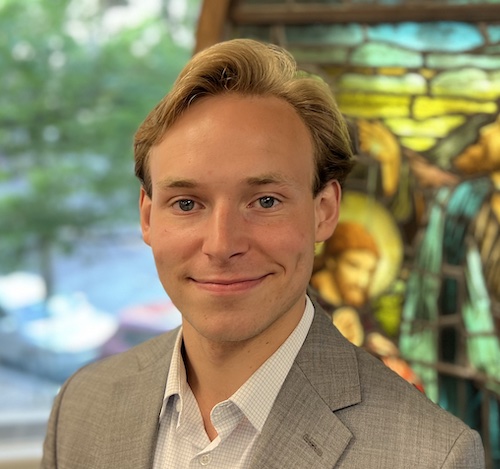A blind Chinese dissident who now teaches at the Catholic University of America in Washington, D.C. recently reminded an audience in the nation’s capital of the importance of American democracy and human rights.
Chen Guangcheng reminded me that the Greeks held the peculiar and paradoxical belief that the blind man is the one who sees. That being unable to view what is before him, he sees what is beyond. Having lost sight of the world, he can ascend the heavens. As the picture of this life grows dim, he sees into the next.
This archetypal figure of the blind prophet runs throughout Greek tragedy and tradition. Tiresias was the prophet of Apollo in Thebes. Sophocles’ chorus sings with reverence whenever the scene focuses on Tiresias. In Oedipus Rex, Tiresias tells a bewildered Oedipus that Oedipus himself is the man who killed his father. Homer too, that great poet who promulgated the epics that now bear his name, was blind. The English poet John Milton found comfort in this tradition as he felt his own vision dwindling.
These are but a few examples of the blind bard, and though it is often reduced to superstition, I recalled this truth when listening to Chen present at the Bradley Prizes.
Chen’s story is known by many but not enough. He was born blind, and raised in a poor village in Eastern China, but none of these limitations lessened his drive to learn. Chen taught himself the law, and amidst the triumphs of the CCP has stood for various human rights campaigns—the latter of which came only with suffering.
He briefly told the audience of being under house arrest and subsequently escaping from it, upon which he took refuge in the American embassy. He describes that his only hope was in the American embassy. It was that building, representing this land, that stood for the liberty he so deeply desired.
Chen, having never seen America, knew what many of us intellectually ascend to without ever truly grasping: America, flawed and broken, still practices liberty; and that the world, though changing and in many ways outpacing America, still seeks her guidance. As Abraham Lincoln once said of America, she is “the last best hope of Earth.”
Chen reminds us of this as both an immigrant and prophet. One can hear the convection in the earnest vigor of his voice. As his hands moved across the podium to feel the braille words of his speech, he insisted upon the significance of this American experiment.
It is often the case that the outsider sees our virtues (alongside our vices) better than ourselves. Chen is such an example. One could easily tell how deeply he felt the spiritual significance of liberty—a word that is spoken of so readily that we are apt to forget its rarity.
Cicero, the Roman Statesman, speaking in the dwindling hours of the Roman Republic, wrote the following words of his time that may neatly be applied to our own.
“Long before our time the customs of our ancestors molded admirable men, and in turn those eminent men upheld the ways and institutions of their forebears. Our age… inherited the Republic as if it were some beautiful painting of bygone ages, its colors already fading through great antiquity; and not only has our time neglected to freshen the colors of the picture, but we have failed to preserve its form and outlines.
As Americans living today, we are the inheritors of the “beautiful painting of [a] bygone age.” And though we may have failed “to freshen” its colors, Chen has not. His speech took part in this ennobling and necessary act of refreshing and reenergizing our sense of ownership in America. Every word was a reminder, every phrase an obligation, to apply fresh colors to the American picture.
Chen was the prophet, though not of Thebes, but he nonetheless reminded this land of the vigor and energy still latent within. In continuity with Wilfred McKay and Glenn Loury before him, Chen failed to lose hope for the nation that accepted him long ago.
His words reminded me of Alfred, Lord Tennyson’s “Ulysses,” who spoke of the adventures he had yet to embark upon even in old age. So is the state of our nation and that of Rome—walking in old age, but not without its strength; and if the latter failed to heed the warnings of Cicero, perhaps we can. Perhaps we have the will to sustain and increase America’s virtue, even amidst the exhaustion and age that she now shows.
“[A]nd tho’
We are not now that strength which in old days
Moved earth and heaven, that which we are, we are;
One equal temper of heroic hearts,
Made weak by time and fate, but strong in will
To strive to seek to find, and not to yield.”
Never to yield.






Comment by Jeff on June 13, 2022 at 10:51 pm
Amen. Good article, Mr. Knox. Thank you for introducing me to Mr. Guangcheng; I look forward to learning more about him. May GOD bless him (and you) richly.
Blessings in Christ,
Jeff